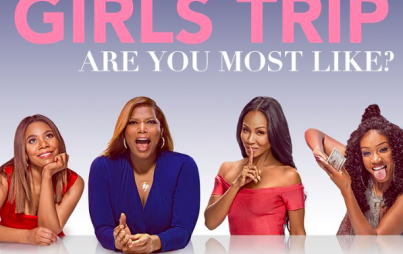
Voices from on and off the field sound off on sexism and gender inequality in sports. You can read other articles in the series here. Have a perspective you'd like to add to the discussion? Email us at ravishly@ravishly.com.
Ward Serrill makes films that excel in revealing the miraculous and indissoluble nature of the human spirit. His first feature, The Heart of the Game, based on a Seattle high school basketball team, was an international Miramax hit. His most recent film, Song of the New Earth, is in worldwide release. He recently finished Babies Behind Bars with Soledad O’Brien. Previously he made 50 short films for Vulcan Productions as well as a PBS special on Seattle’s music scene called Something in the Water featuring Macklemore and KEXP. He has made forty other films including Building One House with Robert Redford and Wild America, a film on Lewis and Clark, with Sissy Spacek.
Imagine a pack of teenage girls that scream out in feral camaraderie, “Sink your teeth in their necks!” and then goes out and tears up their opponents.
The Heart of the Game is a film that chronicles the struggle of an African American girl, Darnellia Russell, fighting for her civil rights as a young mother to play the game she was divinely gifted to play. Her basketball team was immortalized by the appearance of an unlikely mentor, a Birkenstock-wearing-college tax professor, Bill Resler, whose unorthodox coaching methods centered around the surprisingly revolutionary idea that teenage girls should be empowered. He encouraged them to “defend their turf,” used savage animal metaphors to inspire them and encouraged the full blossoming of their spirits.
These girls were not like girls I went to high school with in the '70s, whose choices were typically only cheerleading or tennis. Here were girls battling like wolves, crashing to the floor and fighting for every inch with elbows and grit. And they were having more fun than anyone I ever saw on a basketball court. Certainly Title IX had its hand in this; young girls all across the country were, by the time I made the film, flocking to team sports like soccer and basketball. But Resler was taking everything to a new level. He was teaching life lessons that would help create more powerful women down the line and off the court.
The story would not have proved so relevant, however, had it not been for the sexism and discrimination that reared their ugly heads.
Darnellia, a single African American girl, was blocked from playing by the governing body of high school sports in Washington state when she became pregnant and lost a year of eligibility. Darnellia took her case to court and won as the judge declared that the policy discriminated against pregnant girls, with no ramifications for the boys. She went on to lead her team to the state championship.
Darnellia’s teammate, Devon Crosby-Helms, was sexually preyed upon by an outside personal coach. When she came forward with the allegations, her own teammates and parents of other girls turned on her—a vivid reminder of how our culture disbelieves or blames the victim. Only when another player came forward with photos of the coach having sex with her when she was fourteen did the investigation turn serious. Eventually, twelve girls stepped up with their own stories of abuse, and the perpetrator went to jail.
It’s been ten years since I made The Heart of the Game. Are things improving in sports and society? At least the NFL is now begrudgingly addressing domestic violence. At least the San Antonio Spurs have hired the first female assistant coach in the NBA. Women sports announcers are becoming more prevalent on ESPN.
But that's little consolation when, off the court, women between the ages of 15-44 are still more likely to be maimed or die as a result of male violence than through cancer, malaria, traffic accidents or war combined. In the business world, only 4.6% of S&P 500 companies have women CEOs. A third of the companies have no women in senior management positions.
But what relevance is this to sports? Sports can play a leading role in leveling the off-court playing. As female athletes and coaches take sexism and discrimination head on, as more learn to defend their turf and support each other as a team, their empowerment will spill over into society and, slowly, we will change.
So to the women and girls who are hitting the court, field, village, or boardroom with all their might, I say, “Sink your teeth in their necks.” It’s good for us.






